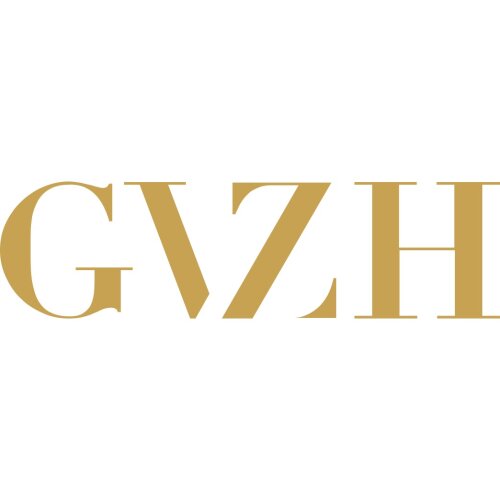Best Sanctions & Export Controls Lawyers in Valletta
Share your needs with us, get contacted by law firms.
Free. Takes 2 min.
List of the best lawyers in Valletta, Malta
About Sanctions & Export Controls Law in Valletta, Malta
Sanctions and export controls are crucial tools used by governments to regulate and restrict the transfer of goods, technology, and funds across borders. In Valletta, Malta, these regulations are in place to comply with international obligations, protect national security, prevent terrorism financing, and uphold foreign policy objectives. Sanctions may include prohibitions or restrictions on trade with specific countries, individuals, or organizations. Export controls commonly relate to items such as dual-use goods, arms, sensitive technologies, and certain financial services. As an EU member state, Malta enforces both international and EU-specific measures, making compliance a complex but essential responsibility for businesses and individuals involved in cross-border transactions.
Why You May Need a Lawyer
Legal guidance is often necessary for those affected by sanctions and export controls, as non-compliance can result in severe penalties, reputational damage, and even criminal prosecution. Common situations where legal assistance is crucial include:
- Launching or expanding an import-export business involving goods or technology subject to controls
- Dealing with frozen assets or financial restrictions involving sanctioned persons or entities
- Navigating due diligence requirements to avoid involvement with blacklisted individuals or organizations
- Structuring international contracts and supply chain agreements to ensure compliance
- Responding to investigations or enforcement actions by Maltese or EU authorities
- Applying for licenses or permits for exporting controlled items
- Understanding and addressing unintended breaches of sanctions regulations
- Providing advice on internal compliance programmes for businesses operating internationally
Local Laws Overview
Malta enforces a mixture of national legislation and EU regulations regarding sanctions and export controls, with oversight from both Maltese authorities and the European Union. The main legal frameworks include the Sanctions (Implementation of External Obligations) Act and related subsidiary legislation. The Malta Sanctions Monitoring Board (SMB) acts as the primary local authority, overseeing compliance with United Nations, European Union, and national sanctions, as well as licensing and auditing matters related to export controls.
Key aspects of the Maltese approach include:
- Automatic adoption and enforcement of EU Council sanctions regulations
- Implementation of UN Security Council Resolutions into Maltese law
- An obligation on financial institutions and designated non-financial businesses to report compliance and suspicious transactions
- Control over transfer, brokering, technical assistance, and transit of dual-use goods
- Obligatory licensing for the export of restricted items
- Severe penalties, including fines and imprisonment, for breaches
Because rules can change quickly, especially in response to global events, it is essential to seek updated advice and stay informed.
Frequently Asked Questions
What are sanctions and export controls?
Sanctions are legal restrictions imposed to target specific countries, entities, or individuals, often relating to trade, finance, or travel. Export controls regulate the transfer of certain products, technology, or services to prevent misuse or violation of international obligations.
Who enforces sanctions and export controls in Malta?
The Malta Sanctions Monitoring Board is the main authority for sanctions enforcement, working together with customs, law enforcement, and other government agencies.
Which imports and exports are most commonly controlled?
Controls typically apply to military items, dual-use goods (those with both civilian and military applications), sensitive technologies, certain chemicals, and sometimes financial services related to these goods.
Are EU sanctions directly effective in Malta?
Yes, as a member of the European Union, Malta automatically adopts and enforces all EU sanctions regulations.
What are the possible penalties for violating sanctions laws?
Penalties can include substantial fines, imprisonment, loss of business licenses, asset freezes, and lasting reputational harm.
How do I know if a person or company is subject to sanctions?
You must check regularly updated lists published by the United Nations, the European Union, and Maltese authorities. Legal guidance is recommended to interpret the listings and conduct due diligence.
Do I need a license to export certain goods from Malta?
Yes, for many controlled goods, you are legally required to obtain an export license from the relevant Maltese authority before sending anything out of the country.
What is the process for applying for an export license in Malta?
Application involves submitting documentation about the goods, end-users, and intended use, as well as compliance with national and international law. The Malta Sanctions Monitoring Board generally manages this process.
Can a company be held responsible for an employee’s violation of export controls?
Yes, companies are legally responsible for ensuring compliance and can face penalties if their staff act in breach of sanctions or export controls.
What steps should a business take to stay compliant?
Implement compliance programs, provide staff training, conduct regular due diligence checks, seek legal advice when needed, and monitor updates to sanctions or export control regimes.
Additional Resources
For more information or to report concerns regarding sanctions and export controls in Malta, consider reaching out to:
- Malta Sanctions Monitoring Board
- Malta Customs Department
- Financial Intelligence Analysis Unit (FIAU)
- Chamber of Commerce, Enterprise and Industry
- Malta Chamber of SMEs
- Legal practitioners specializing in international trade and regulatory compliance
- Relevant departments of the European Commission
These organizations provide regulatory guidance, updates, and assistance with licensing and compliance issues.
Next Steps
If you think you may be affected by sanctions or export controls, the best initial step is to gather detailed information about your business activities, trading partners, and products or services. Next, consult with a qualified legal professional well-versed in Maltese and EU regulatory requirements. A lawyer can help assess your level of risk, support license applications, and design or review compliance programs for your business. Staying proactive is essential, as legal obligations evolve, and non-compliance penalties are severe. Reaching out early to available resources and experts will give you the best chance to navigate the complexities of sanctions and export controls in Valletta, Malta.
Lawzana helps you find the best lawyers and law firms in Valletta through a curated and pre-screened list of qualified legal professionals. Our platform offers rankings and detailed profiles of attorneys and law firms, allowing you to compare based on practice areas, including Sanctions & Export Controls, experience, and client feedback.
Each profile includes a description of the firm's areas of practice, client reviews, team members and partners, year of establishment, spoken languages, office locations, contact information, social media presence, and any published articles or resources. Most firms on our platform speak English and are experienced in both local and international legal matters.
Get a quote from top-rated law firms in Valletta, Malta — quickly, securely, and without unnecessary hassle.
Disclaimer:
The information provided on this page is for general informational purposes only and does not constitute legal advice. While we strive to ensure the accuracy and relevance of the content, legal information may change over time, and interpretations of the law can vary. You should always consult with a qualified legal professional for advice specific to your situation.
We disclaim all liability for actions taken or not taken based on the content of this page. If you believe any information is incorrect or outdated, please contact us, and we will review and update it where appropriate.













